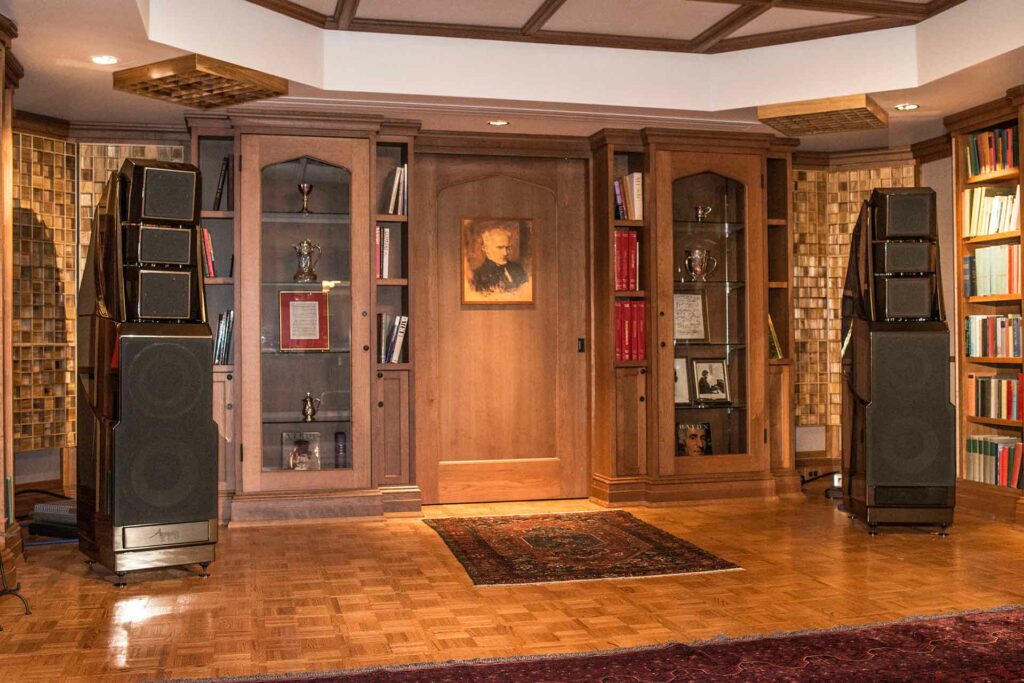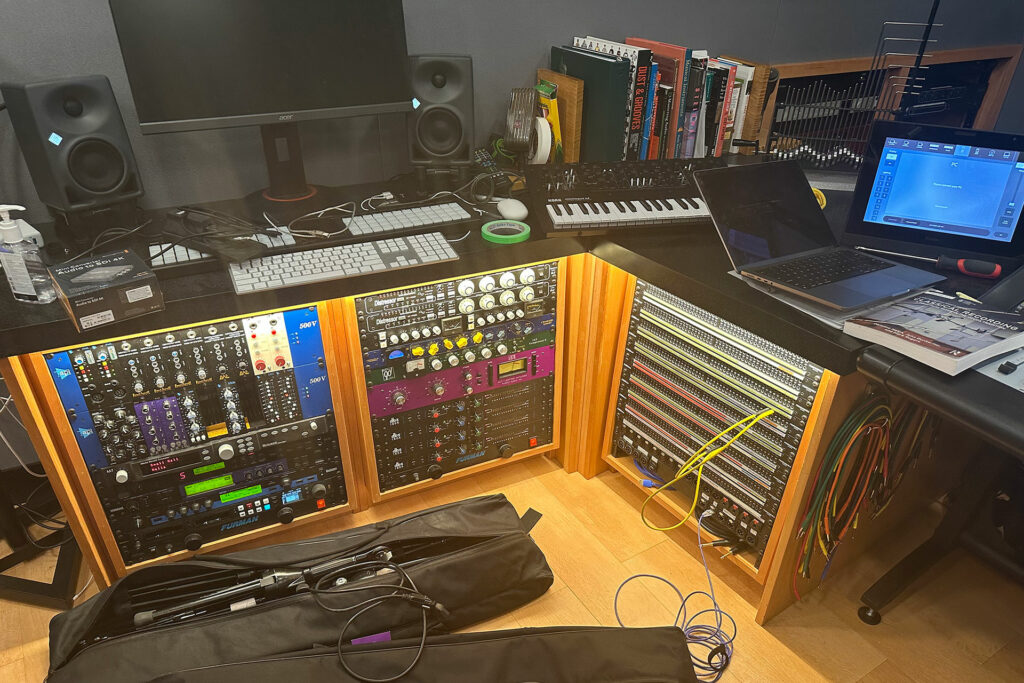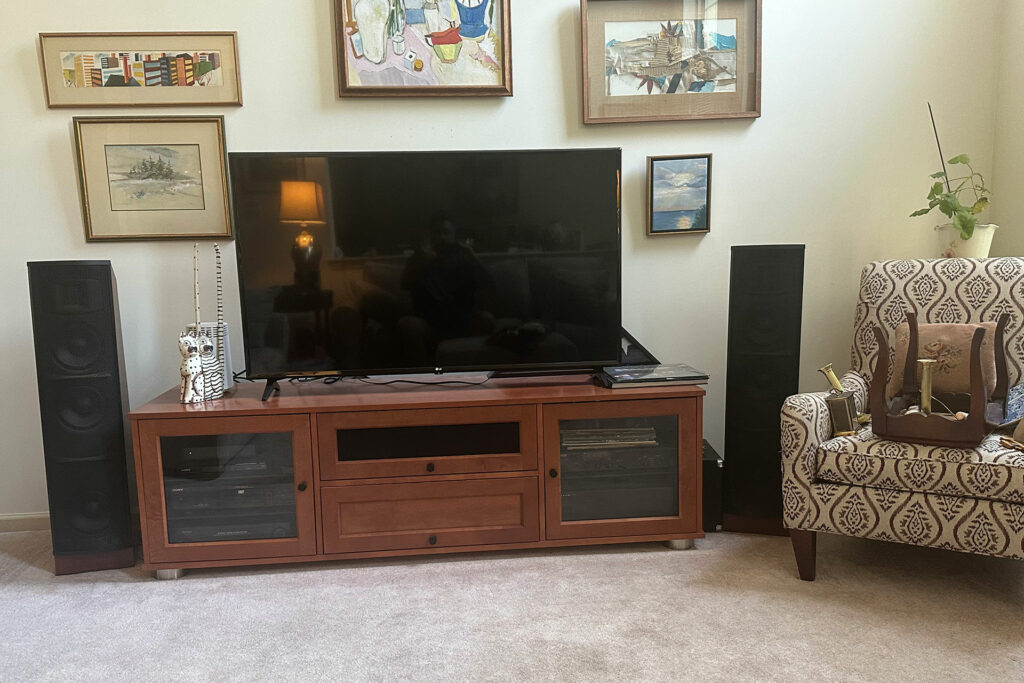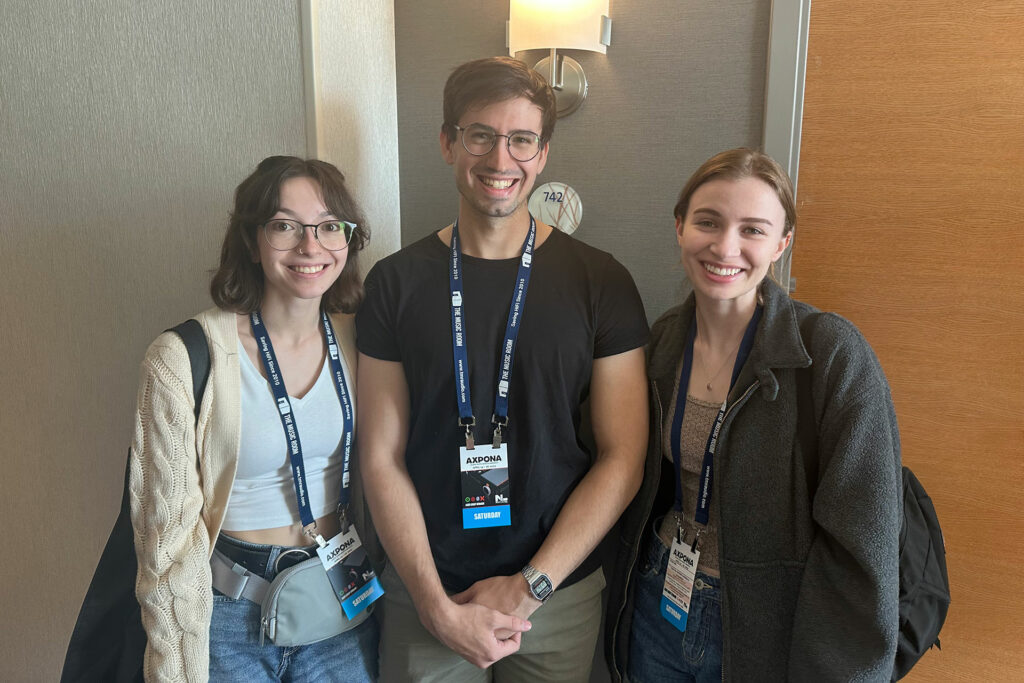The University of the South was not a school that I had heard of until my audiophile friend, classical recording engineer and former Absolute Sound and Stereophile writer John Marks, told me about their audiophile listening room. A priest at the university had amassed a major audiophile system as well as one hell of a collection of vinyl. When the beloved audiophile priest passed, he left a long-lasting legacy for future audiophiles at the school and beyond (yes, you can schedule a visit to hear their system – you just need to schedule a time). He left them enough music and some gear to build a roughly $1,000,000 listening room. Yes, you read that right – a million-dollar listening room that also serves as a pretty damn classy classroom. If you are looking to show young people why they might want to invest in an audiophile system, this might be the most powerful incentive that we’ve heard of to date. There are large Wilson Audio speakers, robust power amps, a slick-ass turntable with multiple tonearms, plus a serious amount of money spent on acoustics and acoustical treatments. I’ve yet to make it for a visit, but I need to get out that way to complete my long-term challenge of playing all of the Golf Magazine Top 100 Courses in the United States (I am at 74 of the Top 100, with 19 of the top 20 on my resume). I am weak in the Southeast, and when I get back there, I am going to go hear the system that John and others spent so much time, money and effort on, as it seems like the most FutureAudiophile.com concept ever.

Ray Kimber Has Cemented a Slightly Different Audiophile Legacy at Weber College
Last spring, I traveled to Utah to see clients and prospects as part of the early days of the publication. I flew into Salt Lake, and Ray Kimber (of Kimber Kable fame) insisted in picking me up at the airport and taking me to both the Kimber factory and Ray’s Man Cave, which is a warehouse filled with all sorts of goodies not far from the regional airport in Ogden, Utah. Before we got to his Man Cave, we visited Weber State University. Ray is quietly a big donor there, which you wouldn’t always know, because Ray is such a humble man. He has helped this school create a truly world-class music industry program. I know a little bit about music industry programs in college, as I graduated from a pretty notable one at the University of Southern California way back in 1997, which was the first graduating class from this “part music – part business” program. Weber State is now a Top 10 contender in this exciting, tech-forward and creative field of study. Considering what USC charges and what Weber State costs, I could make a strong argument for why a young person might want to study in Utah versus South Central (OK – Downtown) Los Angeles.
Among so many other thoughtful acts, Ray helped Weber State purchase a number of Steinway pianos. One of them was owned by an audiophile legend, Diana Krall. The university, with some additional help from some well-heeled local donors, has been able to build not just a fantastic building, but also performance spaces, remote recording facilities, and even a costume shop to help with making outfits for plays and other performances.
It is a lot easier to talk about the future of the hobby than to do something about it. Ray has put his money and effort behind making this program one of national prominence. Dozens of young folks will get exposed to the process of making music, as well as listening to music. As part of their education, they will use Bricasti reverbs units and Apogee DACs. They likely will connect and re-connect gear with ample amounts of Kimber Kable products, all while learning and experience what real music sounds like.

What Do You Do If You Want an Audiophile Legacy But You Can’t Donate Six or Seven Figures of Money?
Don’t worry, you don’t have to be a “put your name on the building”-level donor to have an audiophile legacy. Not at all. Nor do you have to give money, gear or your CD collection to a school, although that is certainly a generous gesture. Here’s a question… Does your estate know what to do with your audio system? I ask because I am one of the few people to have a) worked at Mark Levinson’s Cello Music and Film and b) written about it on the Internet. More and more Cello clients are either downsizing or have died and, maybe once per year, I hear from somebody looking to sell such a legendary but not legacy reference audiophile system. What do you do with such a large-format system? What is worth? Where should it be sold? How is it sold? Without a little guidance, this could be a potential waste of a lifelong passion, as well as a lot of money. I had a professor, Ken, in music school who was friends with Les Paul. In fact, Les was the first person to leave him a message on his analog answering machine at his home in Northridge, California right after the 1994 earthquake. Ken owns and plays a 1958 gold-top Les Paul guitar that is quite collectable. I’ve been told that (and I’ve even played it) it is worth $750,000 or more. Ken has instructed and left his wife a plan for how to put one of his favorite instruments up for auction, including a photo of Les Paul playing his exact guitar, so that in the event of Ken’s demise, there is a clear plan as to what to do. How many audiophile spouses can say that they know enough to make the most of one’s audiophile system? Should it be auctioned? Are their private parties interested? What is the book value of some of these products at Audiogon? Where are the boxes? Did anyone save the original invoices? Is there a dealer who can help, and at what rate? As you can see, there are a lot of questions to answer when it comes to you and your audio system when you are ready to be done with it at any reasonable level.

What To Do If You Own a More Modest Music or Audiophile System But You Still Want To Make an Impact or Statement About Yourself in the Audiophile Hobby?
A lot of my examples have been with wealthy people or expensive assets, but what if you have a modest system that is worth thousands or tens of thousands of dollars, as opposed to a six-figure- or seven-figure-valued system? Not to worry, as there will be no shortage of charities, groups or people who would love to have your audiophile legacy live on through them? A golf buddy of mine is a very generous man (he’s lovingly made fun of by fellow club member Larry David, in a key episode of Curb Your Enthusiasm), who supports a charity in South Central Los Angeles that is designed to fight the concept of “the zip code that you are born into should determine the outcome of your life,” and they do really impressive work with over 600 kids in an after-school program. They teach the harp. They present plays. They do mock political debates. And music is a huge part of what they do on a nearly daily basis. What music teacher could use some KEF speakers and old ADCOM electronics with a CD player, music server and perhaps a turntable to play the kids all types of music? Every single one of them is the answer.
A special young person who truly loves music might love to have your system when you are done with it. Churches are as musical a place that you can find. Perhaps a local church would want to dedicate a room for music playback? With mental health an increasingly pressing topic, perhaps a place that deals with said issues might benefit from playing some chill-AF tunes in their lobby as people wait for treatment? There’s no shortage of creative places where your music collection and/or parts (or all) of your music system can live on long after you.

Final Thoughts on Your Audiophile Legacy…
There might not be a more personal decision in the hobby than what to do with your audiophile system when you are done with it. Perhaps the best legacy would be to help young people fall in love with music and the love of music playback as a high art form (and science)? Is there somebody who you can mentor now, who would enjoy going to see a live show with you? Is there a young person who you might take to an audiophile show and teach the ropes to? Would you subscribe to an audiophile magazine for a kid who may not read any magazines that are printed?
There is no competition here, and there should be absolutely no shaming, either. The time, money and passion that you’ve put into the hobby has resulted in countless hours of your own personal enjoyment. Our challenge to you is to think about how you can pass your passion, enthusiasm, know-how and energy for the audiophile hobby onto the next generation. You don’t have to chair a scholarship at a Top 25 music school (unless you really want your grandchildren to go there). You don’t have to put your name on a building that houses a million-dollar music playback system that all can hear and experience. What would be cool is if we all found one person that we could pass this hobby on to and start them on their own audiophile journey. That way, when the OG audiophiles aren’t around anymore, their legacy as a generation will be as the creators of this kickass hobby but also as the ones who pass on the torch to the next generations of passionate listeners.
What is your idea for your audiophile legacy? Have you ever thought about the topic? Would you mentor a young audiophile? Can you think of somebody who might be a good (and willing candidate)? Do you have a plan for what to do with your system when you reach the end of your audiophile journey? Let us know in the moderated comments below and we will be quick to share your thoughts. We love to hear from you.




My Daughter recently graduated from The University of the South. I have visited the Ralston Listening Library numerous times in the past 4 years. It is an amazing system, I can’t wait to schedule a time to go back soon. I encourage everyone if you are near the area to take a visit.
That is AWESOME.
I want to go there and visit. Paul Wilson and Jim Swantko live somewhat nearby.
I am trying to play the Golf Magazine Top 100 Courses in the US and I’ve got a bunch in the Southeast to do. I want to tie this in to one of those trips maybe?
You see it all the time at estate sales….good gear going for a fraction of it’s value because the owner, who probably had a will, trust and power of attorney to handle the more common assets/situations never explained to any of the family members what to do with the audio system.
Did he/she tell them about the boxes in the attic? Were they told about his user ID on USAM and how to resell gear? Were they even told about how to turn it on or off? Most likely, the answer is no to all of the above.